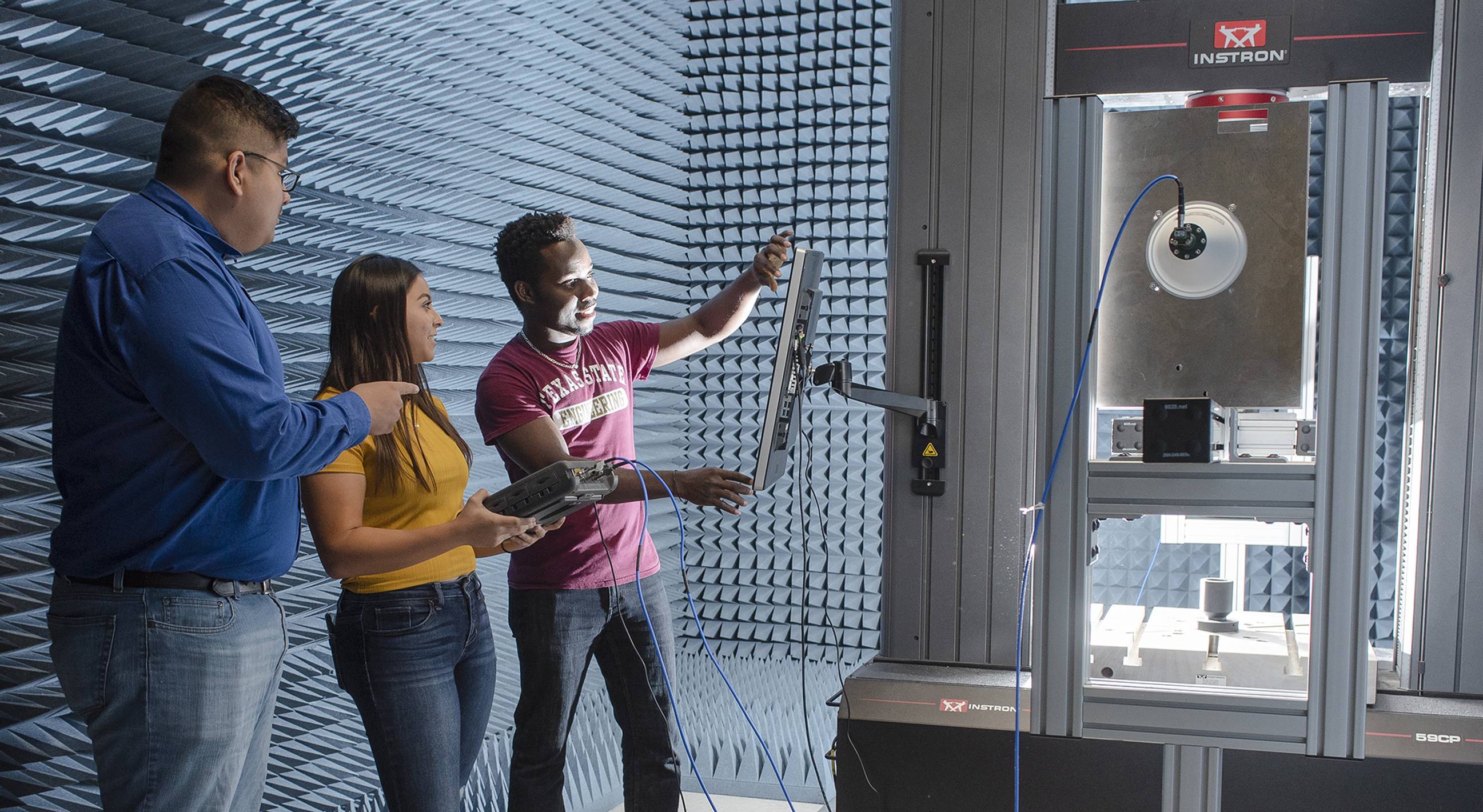New civil engineering program exceeds enrollment projections

By Jayme Blaschke
New degrees are added at Texas State University only after rigorous research indicates an unmet need. Before launching the bachelor of science in civil engineering program in the fall of 2019, officials in the Ingram School of Engineering were fairly confident the demand was high for the new degree.
Still, every new program launch comes with a certain degree of uncertainty. The target for the first semester was to enroll 65 students. When the first day of classes arrived, 90 had signed up, far exceeding the initial goal.
“We knew that the market was there,” says Dr. John Schemmel, the Bruce and Gloria Ingram Endowed Chair in Engineering. “I’m not surprised that we met and exceeded 65. It’s a good sign for next year, and the years to come, that we will have the enrollment that we were anticipating and probably much more.
“When we did the proposal, we knew there are 750 positions annually that go unfilled because of the lack of civil engineering graduates,” he says. “I expect this first-semester enrollment means we’ll have strong growth in years to come.”
Texas State’s civil engineering degree program is the first in Texas with a holistic emphasis on technology-enhanced infrastructure. This interdisciplinary approach to civil engineering draws upon existing programs in computer science, electrical engineering, biology, mathematics, and geography. Graduates of the program will have a strong foundation in traditional civil engineering topics combined with a unique education in the emerging field of smart infrastructure technologies. This initial cohort of students are all taking the same course, Introduction to Smart Infrastructure, divided among three sections.
“The three faculty that are teaching the program are all commenting on the quality of the students,” Schemmel says. “They are having good interaction with the students, good questions and answers. It’s not just that there are a large number of students enrolled in the program; it appears that we have a quality group of students.
“It’s very exciting. We’re in a good place, and hopefully it just keeps going up,” he says.
Texas State’s program focuses on all technologies, smart or otherwise, which enhance the public safety, economic value, and longevity of municipal and private infrastructure assets. Graduates will be prepared to work with monitoring sensors, communication systems, predictive analytics tools, and infrastructure management technologies.
Nationally, the U.S. Bureau of Labor Statistics projects that from 2016-26, employment in civil engineering will grow nationally by more than 32,000 positions, an increase of more than 10%. The Texas Workforce Commission predicts an increase in demand for civil engineers of nearly 24% for 2014-24. That translates into more than 6,000 positions, and an annual shortfall of 750 civil engineers given the current production of existing engineering programs in Texas. Population growth in Texas brings with it a need for civil engineers to design and maintain an expanding modern infrastructure. Texas State’s civil engineering degree program will be an important factor in fulfilling that demand and contributing to the economic needs of the state. ✪